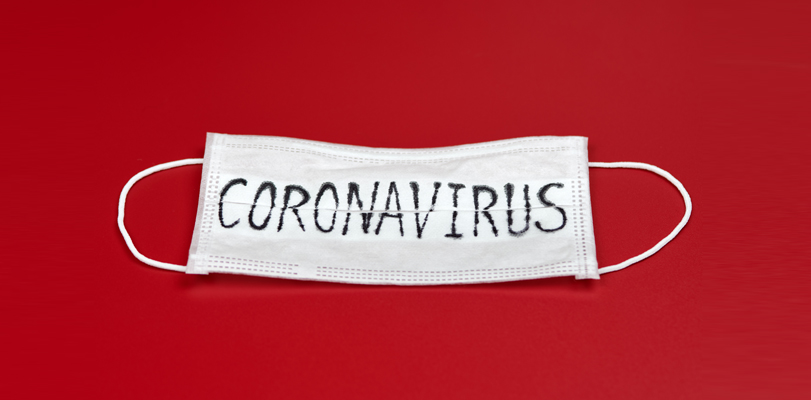Tired of receiving invites to lengthy webinars covering the latest COVID-19 updates? So are we! This page sums up the most frequently asked health, banking & real estate as well as business-related questions surrounding the pandemic.
A closer look at COVID-19 and the virus behind it
What is a Coronavirus?
According to the World Health Organization (WHO), Coronaviruses are a large family of viruses which may cause illness in animals or humans. In humans, several coronaviruses are known to cause respiratory infections ranging from the common cold to more severe diseases such as Middle East Respiratory Syndrome (MERS) and Severe Acute Respiratory Syndrome (SARS). The most recently discovered coronavirus causes coronavirus disease COVID-19.
What is COVID-19?
According to WHO, COVID-19 is the infectious disease caused by the most recently discovered coronavirus. This new virus and disease were unknown before the outbreak began in Wuhan, China, in December 2019.
What are the symptoms of COVID-19?
The most common symptoms of COVID-19 are fever, tiredness and dry cough. Some patients may have aches and pains, nasal congestion, runny nose, sore throat or diarrhoea. These symptoms are usually mild and begin gradually. Some people become infected but don’t develop any symptoms and don’t feel unwell. Most people (about 80%) recover from the disease without needing special treatment. Around 1 out of every 6 people who gets COVID-19 becomes seriously ill and develops difficulty breathing. Older people, and those with underlying medical problems like high blood pressure, heart problems or diabetes, are more likely to develop serious illness. People with fever, cough and difficulty breathing should seek medical attention.

How does COVID-19 spread?
People can catch COVID-19 from others who have the virus. The disease can spread from person to person through small droplets from the nose or mouth which are spread when a person with COVID-19 coughs or exhales. These droplets land on objects and surfaces around the person. Other people then catch COVID-19 by touching these objects or surfaces, then touching their eyes, nose or mouth. People can also catch COVID-19 if they breathe in droplets from a person with COVID-19 who coughs out or exhales droplets. This is why it is important to stay more than 1 meter (3 feet) away from a person who is sick. WHO is assessing ongoing research on the ways COVID-19 is spread and will continue to share updated findings.
How likely am I to catch COVID-19?
The risk depends on where you are – and more specifically, whether there is a COVID-19 outbreak unfolding there.
For most people in most locations the risk of catching COVID-19 is still low. However, there are now places around the world (cities or areas) where the disease is spreading. For people living in, or visiting, these areas the risk of catching COVID-19 is higher. Governments and health authorities are taking vigorous action every time a new case of COVID-19 is identified. Be sure to comply with any local restrictions on travel, movement or large gatherings. Cooperating with disease control efforts will reduce your risk of catching or spreading COVID-19.
COVID-19 outbreaks can be contained and transmission stopped, as has been shown in China and some other countries. Unfortunately, new outbreaks can emerge rapidly. It’s important to be aware of the situation where you are or intend to go. WHO publishes daily updates on the COVID-19 situation worldwide.
You can read these ahttps://www.who.int/emergencies/diseases/novel-coronavirus-2019/situation-reports/.
Should I worry about COVID-19?
Illness due to COVID-19 infection is generally mild, especially for children and young adults. However, it can cause serious illness: about 1 in every 5 people who catch it need hospital care. It is therefore quite normal for people to worry about how the COVID-19 outbreak will affect them and their loved ones.
We can channel our concerns into actions to protect ourselves, our loved ones and our communities. First and foremost, among these actions is regular and thorough hand-washing and good respiratory hygiene. Secondly, keep informed and follow the advice of the local health authorities including any restrictions put in place on travel, movement and gatherings.
Learn more about how to protect yourself at https://www.who.int/emergencies/diseases/novel-coronavirus-2019/advice-for-public

Is it safe to receive a package from an area where COVID-19 has been reported?
Yes. The likelihood of an infected person contaminating commercial goods is low and the risk of catching the virus that causes COVID-19 from a package that has been moved, travelled, and exposed to different conditions and temperature is also low.
How can I grocery shop safely during the crisis?
When grocery shopping, keep at least 1-metre distance from others and avoid touching your eyes, mouth and nose. If possible, sanitize the handles of shopping trolleys or baskets before shopping. Once home, wash your hands thoroughly and also after handling and storing your purchased products. There is currently no confirmed case of COVID-19 transmitted through food or food packaging.
Is COVID-19 airborne?
The virus that causes COVID-19 is mainly transmitted through droplets generated when an infected person coughs, sneezes or speaks. These droplets are too heavy to hang in the air. They quickly fall on floors or surfaces.
You can be infected by breathing in the virus if you are within 1 metre of a person who has COVID-19, or by touching a contaminated surface and then touching your eyes, nose or mouth before washing your hands.
Banking and Real Estate facilitating measures during COVID-19

What do I do if I received a salary reduction and have personal loans to pay?
UAE Banks have been instructed to facilitate the deferral of loan repayments to their consumer clients for April, May and June. Most local banks are adhering to the directive and you should call your bank’s Customer Service number to request a loan deferral on personal loans, mortgages and credit cards.
What do I do if my company is in a cash crunch and has loans to pay?
UAE Banks have been instructed to facilitate the deferral of loan repayments to their corporate clients for April, May and June. Most local banks are adhering to the directive and you should call your bank’s Customer Service number to request a loan deferral on personal loans, mortgages and credit cards.
What do I do if I’m having a personal liquidity crisis?
UAE Banks have been instructed to facilitate the approval and disbursal of personal loans to their consumer clients for April, May and June. Most local banks are adhering to the directive and you can call your bank’s Customer Service phone number to request a loan I necessary.
What do I do if I’m having a corporate liquidity crisis?
UAE Banks have been instructed to facilitate the approval and disbursal of corporate loans to their corporate clients for April, May and June. Most local banks are adhering to the directive and you can call your bank relationship manager to request a loan if necessary.
What do I do if I received a salary reduction and cannot afford to pay my rent?
Real estate authorities have put a moratorium on evictions and bounced cheques prosecution until July. You should call your landlord and explain your situation and agree to pay the rent monthly moving forward until the situation normalises, or ask for a deferral of the rent payments by 3 months.
Managing your business through COVID-19

What should I be doing to manage through the crisis?
The first thing you need to do to protect your business is elaborate a Business Continuity Plan (BCP).
What is a business continuity plan?
A business continuity plan is the process a company undergoes to create a prevention and recovery system from potential threats such as the current COVID-19 Pandemic.
BCP is designed to protect personnel and assets and make sure they can function quickly when disaster strikes. BCPs should be tested to ensure there are no weaknesses, which can be identified and corrected.
How do I build a Business continuity plan?
- Pick your players
Get the right team together and identify your goals. Be realistic about what you can sustain and how you should prioritize. It is unlikely that your organization is able to continue business as usual right now. That’s why you need to (virtually) bring together the people who understand your core business competencies well enough to make judgment calls with limited information. Leadership direction must come from the most senior levels (CEO and/or Board of Directors). Then form a steering committee that includes senior representatives from operations, finance, human resources, information technology and legal as well as input from the heads of your various product or service lines. If you don’t have a plan now, you probably don’t have a business continuity planner on your team. You should identify a member of this core team who can serve in that function, get educated and lead your process.
- Understand your risks
Identify the current or potential risks that can adversely affect your organization. Obviously, this includes the current pandemic, and you should think about how you can continue to operate if 35-40 percent of your workforce is out sick. But you should also dig deeper. For example, work from home opens you up to all kinds of cyber vulnerabilities and other technical challenges. Once you have a list of top risks, assess those risks to determine the potential impacts to your organization. This enables you to determine the most effective use of resources to reduce potential impacts. The process is known as a risk assessment.
- Analyse the impact
Identify and prioritise your organisation’s key functions and processes to identify which ones will have the greatest impact if they aren’t available. For example, many of us are currently being forced to test how well we operate without access to our facilities for a prolonged and ultimately unknowable period of time. Once you’ve identified how the current scenario will impact your business, you need to analyse the findings to identify any gaps between your requirements for continuing service levels with minimal disruption and your current ability to deliver those requirements. This process is known as a business impact analysis.

- Devise a strategy focusing on cash
Use the analysis that you’ve just done to decide on a plan of action. You will need to come up with practical, cost-effective strategies to reduce the deficiencies you identified during the risk assessment and business impact analysis processes. You’ve identified what is at risk and how it will hurt your business. Now you can go through and brainstorm how to minimize those risks with the information and resources you have at hand.
Two key takeaways:
- Cash is king during a crisis, so protect cashflow to make sure you have a cash runway for some time. Figure out what expenses you can cut and check your receivable position to see what you can collect. So basically, delay all payments you can and prioritise all receivables you can get ASAP.
- Don’t assume this will all be over in two weeks or a month. This is likely to be the new normal for some time. Plan for that so that you are prepared no matter what happens. You can come up with a moderate and severe scenario and then monitor to see how your indicators are tracking against them as this crisis unfolds and adjust accordingly.
As a leader, you will need to make tough decisions and keep calm under pressure. But that doesn’t mean you should ignore the deeply unsettling emotional side of this crisis. Do what you can to protect, retain and support your team as we all work together to face the daunting challenge posed by the spread of COVID-19. Studies show that we trust our own employer above other institutions including the government, media, and business and by a significant margin. Now is the time to show that trust is earned.
What measures can I take to reduce business expenses drastically during this time?
Never forget that these are extraordinary times, and in extraordinary times, non-conventional measures must be envisaged. The survival of your business is at stake! Here are ways you can temporarily cut your expenses to a minimum to navigate through the crisis:
1. Negotiate reduced working hours with employees with a proportional cut in salary. For example, your employees can work 3 days a week with a salary cut of 40% until the crisis is over. Remind your employees that these measures are essential to saving the business and ultimately THEIR jobs.
2. Put non-essential staff on unpaid leave till further notice. This process is also known as furlough.
3. Negotiate rent with your landlord, asking for either a deferral in rent, a restructuring of payments or payment Holiday as well as a reduction in rent cost. Remember that it will be very difficult for your landlord to find another tenant for the foreseeable future.
4. Negotiate better costs and payment terms from your suppliers and service providers. Remember that these are challenging economic times and that everyone is fighting to get as much business as possible.
5. Spend less on non-essential marketing that is considered “fluff” and re-invest into tactical marketing with immediate results.
What measures can I take to increase my revenue/cash during the crisis?
Contrary to popular belief, business is ongoing throughout the crisis and there are a lot of opportunities to do business and increase your market share in times of crisis. Here are a few tips to do so:
1. Lower your prices and prioritise cash over margin. Remember that cash is king at the moment and if you have negotiated payment terms with your suppliers, any cash you get now will help you navigate through the crisis.
2. Give your clients favourable payment terms but incentivise them to pay up front. Again, any cash you can get your hands on improves your current position.
3. Increase your revenue per client by offering more or added services to your current client base. Remember that they are the low hanging fruit and are already sold on your products/services.

How do I manage my cashflow?
Your finance or accounting specialist should build a 13-week cash flow for your business and you should monitor it on a daily basis. This gives you visibility on the viability of your business and motivates you to continue bringing in extra cash and reducing outgoing payments. The more you do that, the more you will be able to see business continuity into the 13 weeks and beyond.
How long will this situation last?
Unfortunately, the most challenging part of managing this crisis is that no one knows how long it will last. The fortunate thing is that the whole world is in the same situation and governments and businesses everywhere are fighting to get business back to normality as quickly as possible. To be on the safe side, you should plan for your business to navigate through the crisis until the end of summer 2020 at the earliest.
How do I put me and my resources’ downtime to good use?
One thing is certain: this crisis WILL end. And when it does, you want to be in the best position possible to bounce back. A lot of your competitors might not have managed the crisis like you have and may be out of business by the time this ends. Therefore, use the downtime to improve your position for when the time comes by either grabbing more market share through pricing and service or by developing that new product or service you always wanted to develop but never had the time to!
What industries are very promising in the current crisis and beyond?
The old saying “out of adversity rises opportunity” is very true. A lot of industries are currently getting maximum profit from this crisis. Just think of supermarkets and food delivery services! Here are the sectors that are currently doing very well and that will continue to do so when the crisis ends:
- Remote working apps
- Remote conferencing apps
- Food delivery apps
- E-commerce
- Online gaming
- Wellness and fitness apps
- Home entertainment
- VPN software
- Children home learning apps and software
- DYI Apps and websites
- Last mile delivery services
- Food delivery
- Groceries and delivery
- Fitness equipment and home gyms
- Educational gaming
- E-learning and E-diplomas
- Cooking Apps
- Cooking equipment
- Gourmet foods
- Virtual Reality
- Etc.









